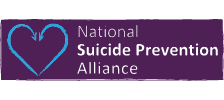Critical Incident Stress Management (CISM)
CISM is an effective debriefing procedure to help normalise the often overwhelming psychological, physiological and emotional responses to minor, moderate and severe critical incidents.

What is a Critical Incident?
A Critical Incident is any traumatic event or situation that creates a significant risk of substantial harm to the physical and/or mental health, safety or wellbeing of an individual.
You don’t need to be directly involved in a critical incident to be affected by an it. Close witnesses are as likely to be affected. And while the injuries caused by post traumatic stress disorder have damaging consequences, they can be largely invisible causing mental health issues.

What is CISM?
CISM is designed to help people deal with their trauma one incident at a time, by allowing them to talk about the incident when it happens without judgment or criticism.
First developed for use with military combat veterans and then civilian first responders (police, fire, ambulance, emergency workers and disaster rescuers), it has now been adapted and used virtually everywhere there is a need to address traumatic impact in people's lives.
HA | Wisdom Wellbeing can offer a range of CISM support services, including crisis intervention, and post-incident support.
We have a robust process in place to manage high-risk traumatic situations and critical incidents, and day-to-day unexpected incidents, that is supported by an experienced UK and international network of specialist CISM personnel.

Benefits of CISM
We recognise the impact of critical incidents on individuals, levels of distress, mental health and the impact that it may have on being able to perform their role effectively or attend work.
We design our corporate wellness services to enhance employees’ natural resilience and provide specialist support to minimise effects of trauma and promote wellbeing and recovery. It is a system of support that is meant to do the following:
- Lessen the impact of the critical incident
- Normalise instinctive reactions to the incident
- Encourage the natural recovery process
- Restore the adaptive functioning skills of the person and/or group
- Determine the need for further supportive services or therapy

Types of CISM
When developing a critical incident stress management plan, there are several types of CISM that can we can deploy, either together or individually.
Debriefing is a proactive intervention involving a group meeting or discussion about a particularly distressing critical incident. We know this as critical incident stress debriefing (CISD.) In a typical CISM debrief, we reach these objectives through group discussions. These cover an introduction, overview of the situation, the group’s impressions, impacts, signals of distress, stress management and summary.
After a break, there is the option to have drop-in sessions on a one-to-one basis with the critical incident responder, to discuss further stress management and recovery techniques in a confidential manner.
Grief and Loss Sessions are a structured group or individual session following a death and assists people in understanding their own grief reactions as well as creating a healthy atmosphere of openness and dialogue.

24/7 Telephone Support
As part of our standard telephonic EAP services, we offer immediate critical incident support via our trained in-house trauma practitioners. Managers with the authority to invoke critical incident support can access telephone support for immediate advice and recommendations regarding appropriate actions to support those affected.

Contact Us Today
Find out more about our Critical Incident Stress Management (CISM) services.
Contact HA | Wisdom Wellbeing today on 0800 206 2552 or request a callback using the link below.
Backed By Brands That Trust Us
Welsh Ambulance NHS Service Trust has used HA | Wisdom Wellbeing as it’s EAP for the past 2 years and the service has been extremely well received by our staff. We were given support from day 1 with communications, leaflets, manager guides to promote the service which has been very helpful.
Ceri Bryant |Occupational Health and Wellbeing Service Manager
























